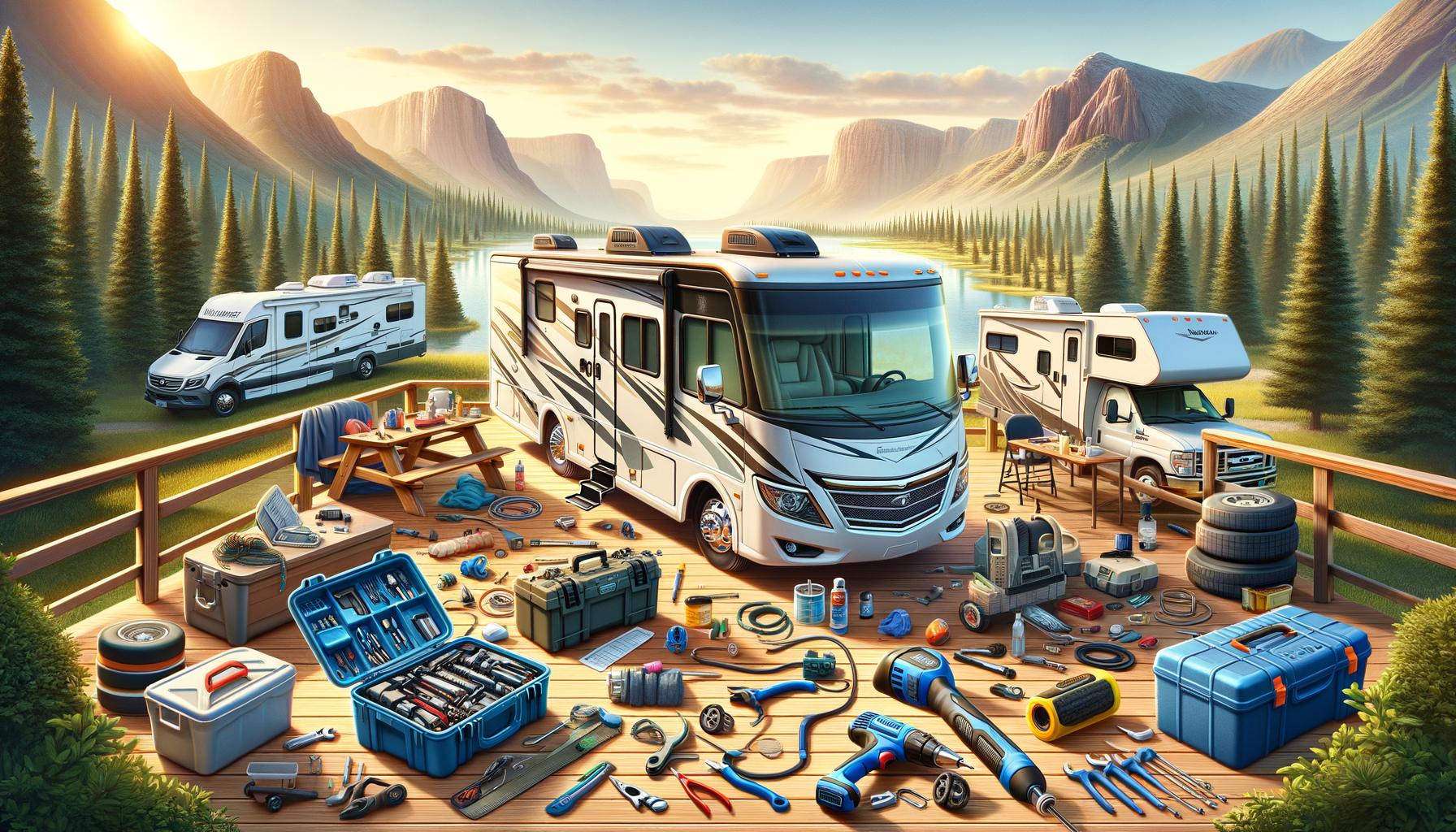Understanding the Types of Used RVs Available
Embarking on the journey to find a used RV can be an exciting yet daunting task. With a myriad of options available, understanding the different types can help you make an informed decision. Used RVs come in various forms, each offering distinct features and benefits. From compact travel trailers to luxurious Class A motorhomes, the choices are abundant.
Class A motorhomes are among the most sought-after RVs, known for their spacious interiors and home-like amenities. These large, bus-like vehicles often feature full kitchens, bathrooms, and sleeping quarters, making them ideal for extended travel. On the other hand, Class B motorhomes, or camper vans, offer a more compact and maneuverable option, perfect for those who value simplicity and ease of driving.
Class C motorhomes strike a balance between size and comfort, featuring a cab-over design that provides additional sleeping space. For those who prefer towing, travel trailers and fifth wheels offer flexibility and a wide range of sizes. Travel trailers are versatile, while fifth wheels provide a split-level design for added space.
When considering a used RV, it’s essential to evaluate your travel needs and lifestyle. Whether you’re planning weekend getaways or full-time living, there’s a used RV that can meet your requirements. Understanding these types will help you narrow down your options and focus on what truly matters for your adventures.
Where to Find Used RV Listings
Once you’ve determined the type of RV that suits your needs, the next step is finding where to purchase it. There are several avenues to explore when searching for used RV listings, each with its advantages.
Online marketplaces are a popular choice, providing a wide range of listings from private sellers and dealerships. Websites dedicated to RV sales often feature search filters that allow you to narrow down options based on location, price, and RV type. Additionally, online forums and social media groups can be valuable resources for finding listings and connecting with sellers.
Local dealerships are another excellent option, offering a selection of used RVs that have often been inspected and serviced. Visiting a dealership allows you to see the RVs in person and get a feel for their condition. Many dealerships also offer financing options, making the purchasing process more accessible.
RV shows and expos can also be a treasure trove for used RVs. These events bring together a variety of sellers in one location, providing an opportunity to compare different models and negotiate deals. Attending an RV show can be an informative experience, allowing you to speak directly with experts and enthusiasts.
Exploring these avenues will increase your chances of finding a used RV that fits both your budget and lifestyle, ensuring a smooth transition into the RV lifestyle.
What to Inspect Before Buying
Purchasing a used RV is a significant investment, and conducting a thorough inspection is crucial to avoid potential pitfalls. Knowing what to look for can save you from unexpected repairs and ensure a satisfactory purchase.
Begin by inspecting the exterior of the RV. Look for signs of water damage, such as discoloration or soft spots, which can indicate leaks. Check the roof, windows, and seams for any cracks or gaps that may need sealing. Tires should be in good condition, with no visible cracks or excessive wear.
Inside the RV, examine the walls, ceiling, and floors for any signs of damage or mold. Test all appliances, including the refrigerator, stove, and air conditioning, to ensure they are in working order. Check the plumbing and electrical systems for any issues, such as leaks or faulty wiring.
It’s also essential to take the RV for a test drive. Pay attention to how it handles on the road, listening for any unusual noises or vibrations. Ensure that the brakes and steering are responsive and that all lights and signals are functioning correctly.
Consider hiring a professional RV inspector for a comprehensive assessment. They can provide an unbiased evaluation and identify potential problems that may not be immediately apparent. This step can provide peace of mind and confidence in your purchase decision.
By conducting a thorough inspection, you can make an informed decision and enjoy your RV adventures with confidence and peace of mind.
Budgeting and Financing Your Used RV Purchase
When it comes to purchasing a used RV, budgeting and financing are key considerations. Understanding the financial aspects can help you make a sound investment without stretching your finances too thin.
Start by determining your budget. Consider not only the purchase price but also additional costs such as insurance, maintenance, and storage. It’s important to have a clear understanding of your financial limits to avoid overspending.
Financing options are available for used RV purchases, similar to auto loans. Many dealerships offer financing plans, and some financial institutions provide RV-specific loans. Compare interest rates and terms to find a plan that suits your financial situation.
Another option is to explore personal loans or lines of credit. These can offer flexibility, but it’s crucial to understand the terms and ensure you can comfortably manage the repayments.
Don’t forget to factor in potential upgrades or repairs that may be needed after purchasing the RV. Setting aside a portion of your budget for these expenses can prevent financial strain down the road.
By carefully planning your budget and exploring financing options, you can make a well-informed purchase that aligns with your financial goals and lifestyle aspirations.
Preparing for Your RV Adventures
Once you’ve secured your used RV, the adventure begins! Preparing for your travels involves more than just packing your bags; it’s about ensuring a safe and enjoyable experience on the road.
Start by familiarizing yourself with the RV’s systems and operations. Understanding how to operate the appliances, plumbing, and electrical systems will make your travels smoother. It’s also wise to practice driving and parking, especially if you’re new to handling larger vehicles.
Planning your route is another important step. Consider your destinations, stops along the way, and the availability of RV-friendly campsites. It’s helpful to have a flexible itinerary that allows for spontaneous adventures while ensuring you have a place to stay each night.
Safety should always be a priority. Ensure your RV is equipped with essential safety gear, including a first-aid kit, fire extinguisher, and emergency tools. Regular maintenance checks will keep your RV in top condition and prevent unexpected breakdowns.
Finally, embrace the RV lifestyle with an open mind and a sense of adventure. Whether you’re exploring national parks or discovering hidden gems, the freedom and flexibility of RV travel offer endless possibilities.
With proper preparation, your RV adventures will be filled with memorable experiences and the joy of discovering new horizons.




Leave a Reply